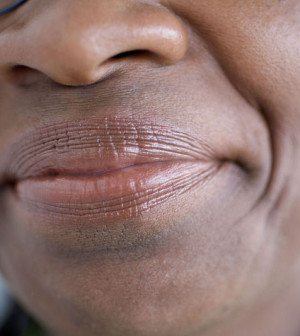- 8 Ways to Increase Dopamine Naturally
- 7 Best Breads for Maintaining Stable Blood Sugar
- Gelatin vs. Collagen: Which is Best for Skin, Nails, and Joints?
- The Long-Term Effects of Daily Turmeric Supplements on Liver Health
- Could Your Grocery Store Meat Be Causing Recurring UTIs?
- Are You Making This Expensive Thermostat Error This Winter?
- Recognizing the Signs of Hypothyroidism
- 10 Strategies to Overcome Insomnia
- Could Artificial Sweeteners Be Aging the Brain Faster?
- Techniques for Soothing Your Nervous System
Immune System May Affect Germs on Your Skin


THURSDAY, Oct. 31Your immune system influences the types of microorganisms that live on your skin and affect your risk for disease, according to a new study.
A person’s skin contains millions of beneficial and potentially disease-causing microbes. Previous research has shown that these microbes influence the immune system but it wasn’t known if the reverse was true.
The new study, published online Oct. 29 in the journal Genome Research, sought to answer that question.
The researchers looked at patients with rare genetic defects that cause reduced immune function. All of them also had an eczema-like skin condition. Samples taken from the patients’ skin showed that they had types of bacteria and fungi on their skin that were not found on healthy people.
This suggests that the immune system does influence the types of microbes that live on the skin, study co-senior author Heidi Kong, of the U.S. National Cancer Institute, said in a journal news release.
She and her colleagues also found that the patients and healthy people had significant differences in the number of different types of microbes present at specific skin sites that are vulnerable to disease. For example, the skin at the elbow crease on patients had fewer types of microbes than the same location on healthy people, while the skin behind the ear on patients had more types of microbes.
This suggests that an imbalance in microbial diversity at a given site on the skin may contribute to disease risk, according to the study authors.
They also found that that the patients tended to have much more similar microbial communities across their entire skin surface, instead of the distinct communities found on healthy people. This suggests that correcting the diversity of microbes on the skin — not just targeting disease-causing types — may help in the treatment of disease, the researchers said.
They added that while this study looked at people with rare genetic disorders, this research may prove useful for patients with temporary decreases in immune function — such as those with cancer and transplant recipients — by guiding the use of antibiotics routinely given to these patients.
More information
The U.S. National Institutes of Health has more about microbes and the human body.
Source: HealthDay
Copyright © 2026 HealthDay. All rights reserved.










